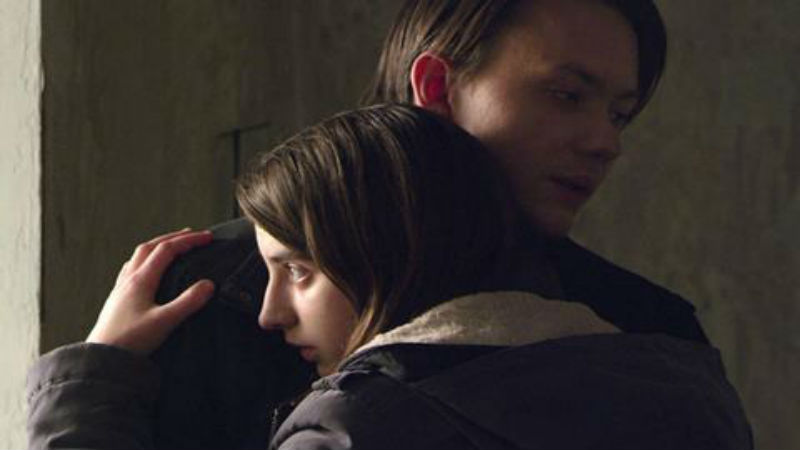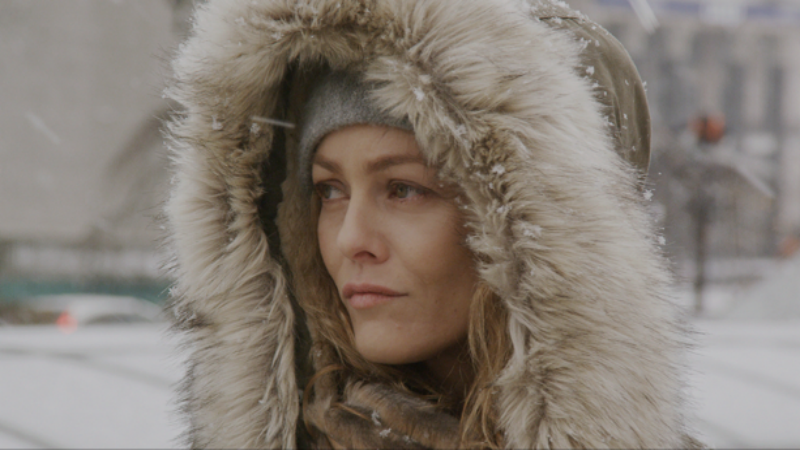During the recent San Sebastian International Film Festival, we managed to get some time to sit with Lithuania’s foremost director Šarūnas Bartas and discuss his latest film Into the Dusk. This is a period picture set in 1948 that depicts the Russian occupation of Lithuania following WW2. It follows the relationship between homesteader Pliaugai’s family and the group of partisan rebels encamped in the nearby backwoods.
What follows is a primer to the historical context of the film and how the film was inspired by Bartas’s adolescence, growing up in the shadow of Lithuania’s Soviet occupation. The fate and background of certain characters is outlined in detail and as such the interview is best used as a companion piece to the film itself, to flesh out some of the more obtuse elements from this quiet but affecting piece.
…
.
Charles Williams – I imagine that In the Dusk refers to the dusk of the war, after the frontline fighting has finished. This is kind of the twilight that follows. Is that where you’re coming from yourself with the title?
Šarūnas Bartas – Yeah, I was. I was born when the last partisan was killed – at the same moment, more or less – there was resistance for a few decades. In the beginning it was stronger, much more organised. This is the resistance against Soviet occupation but, year by year, these people were destroyed and one decade later they still were in the forest with weapons and so on. Everyone was waiting for the Russians to leave, to move away. Not only us but all the world was almost sure that after WW2 they would leave the Eastern European territories, but they didn’t. They went an absolutely different way. They took a part of Berlin, they cut it into pieces.
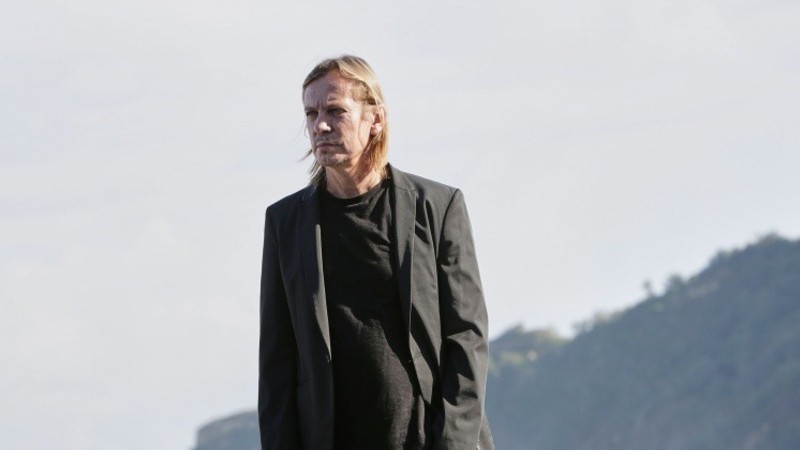
CW – I was going to ask about the overall plan of the partisans shown in the film. There doesn’t seem to be much organisation beyond waiting for things to blow over.
SB – It’s normal. There are three years already passed being in the forest, not being able to show up somewhere in the village in the daytime or something.
CW- No idea how many other groups are left as well, no communication between the cells.
SB – They were still connecting somehow but it was always more and more difficult. In 1948 it was already clear that nothing would happen.
CW – From a British perspective, when you hear of men in the woods, resisting, we have the legend of Robin Hood and the Merry Men. But in their case it was just resisting a local landlord as opposed to a monolithic Empire and the scale is so different.
SB – Well, just imagine if part of England was occupied by Nazis. People somehow would try to resist them.
CW – Whilst we’re on the partisan group, I was interested in their names. ‘Dollar’, ‘boar’ – are these names accurate depictions of real rebels?
SB – They had codenames. Most of them had different names, like ‘Eagle’.
CW – The partisans of the film are such a small group, they can’t really afford to be so vicious on how they internally police themselves. When there are executions for infractions, removing some of their number, it’s not something they can really afford to do but they are trying to uphold their principles.
SB – In the very beginning the USSR was weak, having just taken Berlin. But they were there. With their armies, their horses. I show the biggest group of people that might be hiding and not traced easily. You have to supply the food, there is snow all the time leaving footsteps. You hear stories from the people who live around who supply them with food… They leave traces so they go on purpose into the wood.
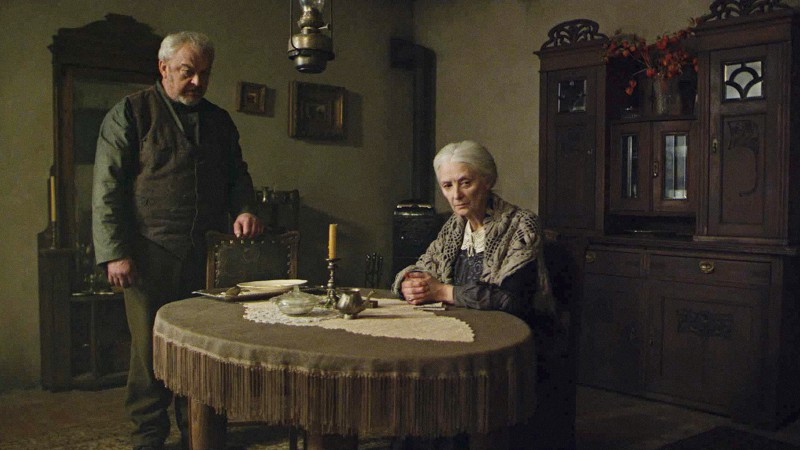
CW – The more people you have the more exponential the difficulty of hiding them.
SB – Normally it was five or six people who live there and also the forests are not so deep. They had to create an infrastructure of collaborators.
CW – Could you explain the situation of Inges, the farmhand who works there? It seems he wasn’t paid anything except a place to stay, some food from the farm… The whole talk about giving him land – that would have been his only payment?
SB – No, normally they were all paid, the workers, but we didn’t show that they buy some stuff, you know? Like some food.
CW – It seemed very similar to the situation of Unte’s parents. Pliaugai said they were poor, working on a farm. On the one hand he is generous to take in Unte but on the other he is not willing to award some land to Inges which could be construed as his eventual downfall, when the communists roll in and parcel up the land, offering it as reward to collaborators… Perhaps if he had been more open-handed?
SB – Eventually it was a lie, a huge lie. Nobody gave the land to anyone. All the lands were taken and all these people, like Pliaugai, they went to Siberia and they died there.
CW – That is Pliaugai’s fate, following the events of the film?
SB – Finally they took all the land. When I was a teenager, all the land belonged to the government. All the flats belonged to the government. You could have one car, one car for one family – not more. It was like a prison. Before, okay, they were shouting that they would give the land to those who would work on it. But it was a huge lie. That lie was used to get rid of people who were wealthy and somehow be a danger to the regime.
CW – Are any of these stories inspired by personal family stories recounted to you directly? Partisan family members throughout the years?
SB – A lot of stories I heard in my childhood, from my great-grandparents. I had five which I remember, and grandparents. They were telling every day, all the time.
CW – Have you been doing a lot of research personally in order to o get the specifics of In the Dusk?
SB – We had to do the research but in Soviet times there was every year a thick book of Soviet union history and one thin book for all years of Lithuanian history. That’s when I was in school but now it’s different times and I was mostly reading diaries of partisans. Which were written not later, and not before. They were written in the bunkers, in the forests. Diaries, just diaries that show that exact moment.
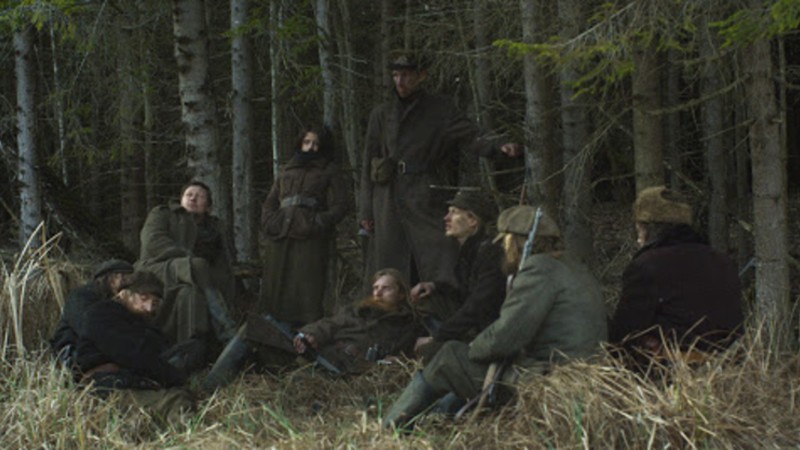
Still there are partisans that are alive these days but there isn’t much use in talking to them. They forget a lot, they are very old people already, and also they were speaking about that so many times it becomes almost a cliché to them.
CW – In your film, the partisans keep diaries, and listen to transmissions from the US, from President Truman. Is this a reflection of their composition as formerly well-educated people with land?
SB – They were printing papers, they were spreading them in the villages, the country, the city. It wasn’t finished until 1991. There were several editions of underground newspapers, very difficult to find but they were still going when I was 20 or 19. Mostly they went through the church.
CW – They were finding out the news from the church?
SB – In church it was easier to cover the dissemination. It was the Vatican church, we have a different church. We are Catholics and Russians are Orthodox.
CW – Are you looking to do more period filming? Depending on the stories that come to mind?
SB – Long ago we had a historical film about the Middle Ages… I don’t know.
CW – Finally, what is in the berry juice that they’re always drinking?
SB – It’s not a juice, it’s something else. There’s no equivalent. It’s a starch water but not so liquid, you add juice and it’s a little heavy. Like a jelly but it’s not completely jelly. It’s still popular in Lithuania today. [This turned out to be the unappetising-looking kissel]
The two images at the top are of Šarūnas Bartas, snapped by Montse Castillo. the other two are stills from ‘In The Dusk’.










